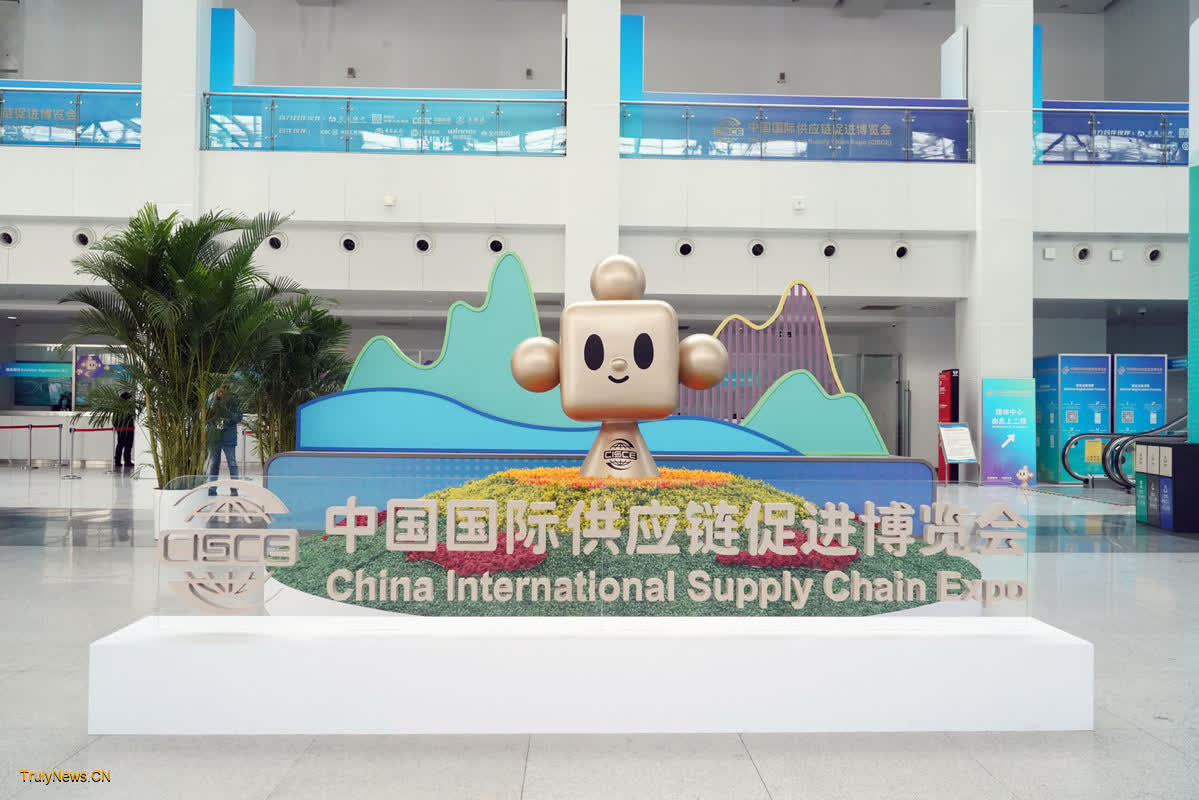
China’s proactive support for global supply chain cooperation will enable both domestic and foreign companies to capitalize on new business opportunities and boost their confidence in investing in its market, the country’s top foreign trade and investment promotion agency said on Monday.
Speaking ahead of the second China International Supply Chain Expo, which will run from Nov 26 to 30 in Beijing, Zhang Shaogang, vice-chairman of the China Council for the Promotion of International Trade, said the event has already attracted over 600 exhibitors this year, with an expected attendance of more than 200,000 visitors from over 100 countries and regions.
As global industrial and supply chains have been significantly impacted in recent years by factors like geopolitics and the COVID-19 pandemic, he said that hosting the expo will bolster the resilience and stability of these networks, fostering increased investment and trade activities across the world while promoting the development of an open world economy.
Several multinational corporations, including Cargill Inc, FedEx Corp and Corning Inc from the United States, Maersk Group from Denmark, and Siemens AG and Bosch Group from Germany, will showcase their latest products and technology solutions, with several debuting innovations at the expo next month.
The Beijing-based CCPIT recently conducted a survey of over 400 major foreign-invested enterprises, with more than 65 percent of respondents recognizing the effectiveness of foreign investment policies introduced by central and local governments. Many also highlighted China’s firm commitment to high-standard opening-up.
This year, international exhibitors at the second CISCE made up 32 percent of the total — surpassing last year’s participation — with companies from the US leading the count, followed by a substantial rise in European and Japanese companies compared to the first edition, according to information released by the CCPIT.
This underscores the sustained optimism of foreign investors toward the Chinese market, reaffirming the nation’s status as a preferred supply chain partner in global resource allocation, Zhang added.
Echoing that sentiment, Poh-Yian Koh, senior vice-president of FedEx Express and president of FedEx China, said that China’s endeavors to build a modern industrial system will facilitate global trade and encourage its companies to invest in overseas markets.
The US express transportation service provider and two-time CISCE participant announced last week a major upgrade to its Shanghai international express and cargo hub at Shanghai Pudong International Airport. The upgrade will transform the facility into an intercontinental transit hub.
As China moves up the value chain, it has increasingly become an exporter rather than an importer of intermediate goods used by manufacturers in other regions. This shift strengthens connectivity and, in turn, enhances the competitiveness of global supply chains, said Lin Meng, director of the Modern Supply Chain Research Institute at the Beijing-based Chinese Academy of International Trade and Economic Cooperation.
In addition to helping businesses of all sizes from various countries leverage this platform for better integrated development, the expo also seeks to promote the deep integration of emerging economies into the global supply chain, said Yu Yi, head of the CCPIT’s general office.